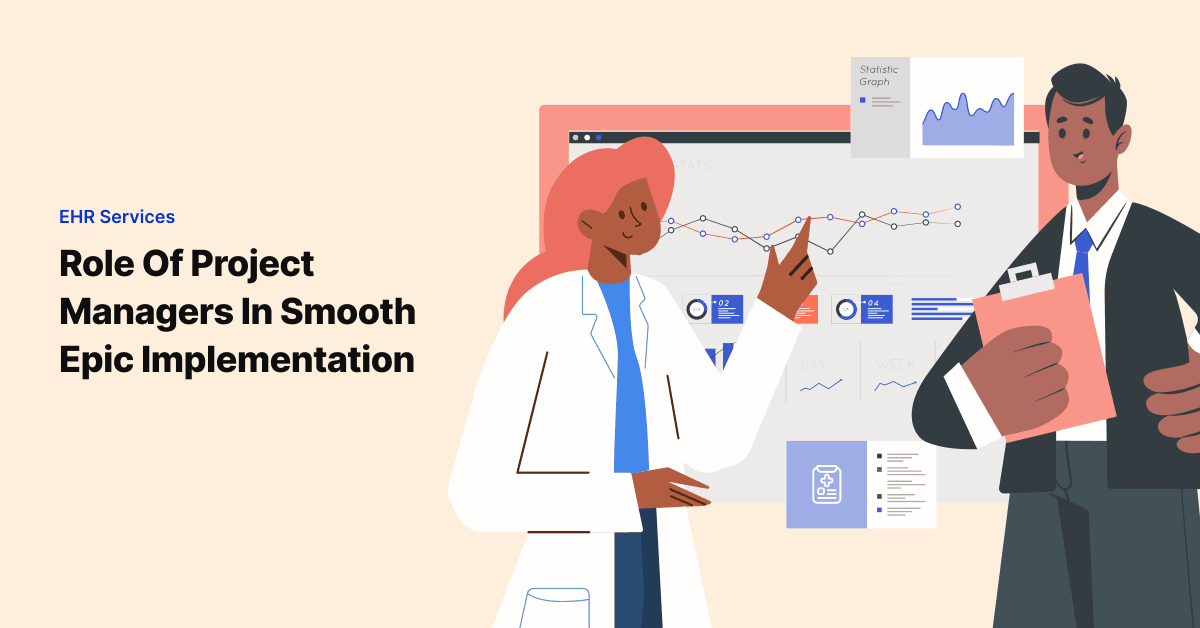
3 Aspects of Epic Implementation that Could be Impacted by Covid-19
It’s safe to say at this point that there is no aspect of our collective lives that has not been impacted by …

Project Managers are often saddled with much of the responsibility when it comes to the success or struggles of healthcare IT implementation. While it can be a tough burden to bear, it’s nevertheless fair given the important role that PMs play in implementing software like Epic EHR for hospitals. As the resource who sets the cadence, communication rhythms, timelines and overall team dynamic, Epic Project Managers are responsible for creating a clear runway for the rest of the implementation team (and often for the client, as a result). It’s no small task to implement Epic into large health systems, so we’re going to dive into a few key ways that effective PM leaders can cultivate the type of project management that leads to smooth Go-live and enthusiastic adoption.
One of the most important jobs of an Epic PM is to ensure that the implementation team is performing and delivering as expected. Timelines mean nothing if they’re not adhered to, and your plans only take root if developers, integration specialists, analysts, QA resources, and even show up for their given responsibilities. A good project manager will be able to spot (via budget tracking spreadsheets just picking up on patterns, such as resources skipping daily stand-ups) when someone isn’t meeting expectations. But a great project manager doesn’t just see the behavior; they address it.
So-called “Soft Skills” are sometimes overlooked when staffing for technical projects such as Epic implementations, but they’re invaluable when it comes to selecting the Project Manager for the job. Driving accountability is necessary, but not everyone accomplishes this task gracefully. While we certainly need not steer away from asking direct questions in front of the greater audience, it’s prudent for a PM to know when a private conversation needs to happen to address a lack of participation or sub par work.
For example, if the lead Epic trainer assigned to the project is suddenly unresponsive, it’s perfectly acceptable for the PM to request a meeting to discuss potential barriers or even personal issues that are precluding responsiveness. After all, we’re human, and it’s worth acknowledging when something seems amiss without jumping to conclusions about ability. Nevertheless, delaying that conversation could lead to resentment, lack of preparedness for the critical stage of Epic classroom training, or simply ignoring signs that a fellow colleague needs help.
The Project Manager is often the unique position of seeing the big picture of an Epic implementation on a regular basis. Whereas an integration expert may be knee deep in APIs and making interoperability possible, they may not have awareness of other components as necessary as their connections for the overall implementation project. Mitigating risk is one of the critical components of good Epic implementation management, and it’s up to the PM to call out risks and make sure they’re dealt with. Just as with addressing accountability head on, ignoring issues before they morph into full-blown threats is the difference between a project that launches on time and on budget (which is, after all, one of the key metrics of a good Epic Go-live) and one that never gets off the ground.
One. One owner. We can’t stress enough how vital it is to establish a single owner for a given task. While the activity required to execute that task may be handled by a team, if you don’t assign responsibility to a single resource for those efforts, you run the risk of a finger pointing match in which everyone loses.
If you have more than one name assigned to a given task, it’s highly plausible that one of two things will happen: either each assumes the other is working the task (therefore it doesn’t get done), or each works the task to completion (which results in redundant effort and waste).
Implementation projects are complex and time consuming. The single most powerful question that a healthcare IT PM can ask is, “What blockers can I clear for you?” With this posture, implementing Epic EHR doesn’t have to feel like a behemoth, but rather an opportunity to add tremendous value to a hospital system.
Join over 3,200 subscribers and keep up-to-date with the latest innovations & best practices in Healthcare IT.

It’s safe to say at this point that there is no aspect of our collective lives that has not been impacted by …

The range of vendors and healthcare IT solutions on the market offer unprecedented choices to health systems …
While we still in the mindset of reducing the influx of Coronavirus cases to give healthcare workers the …